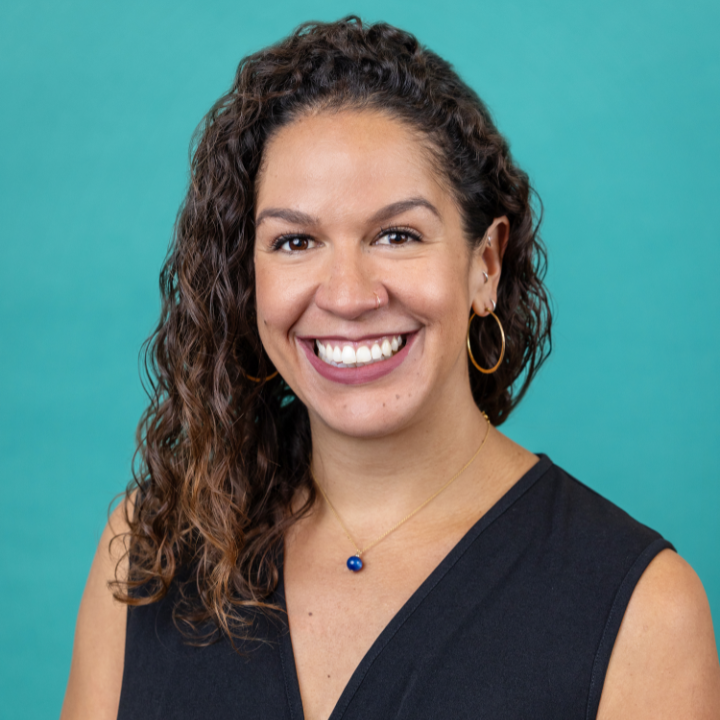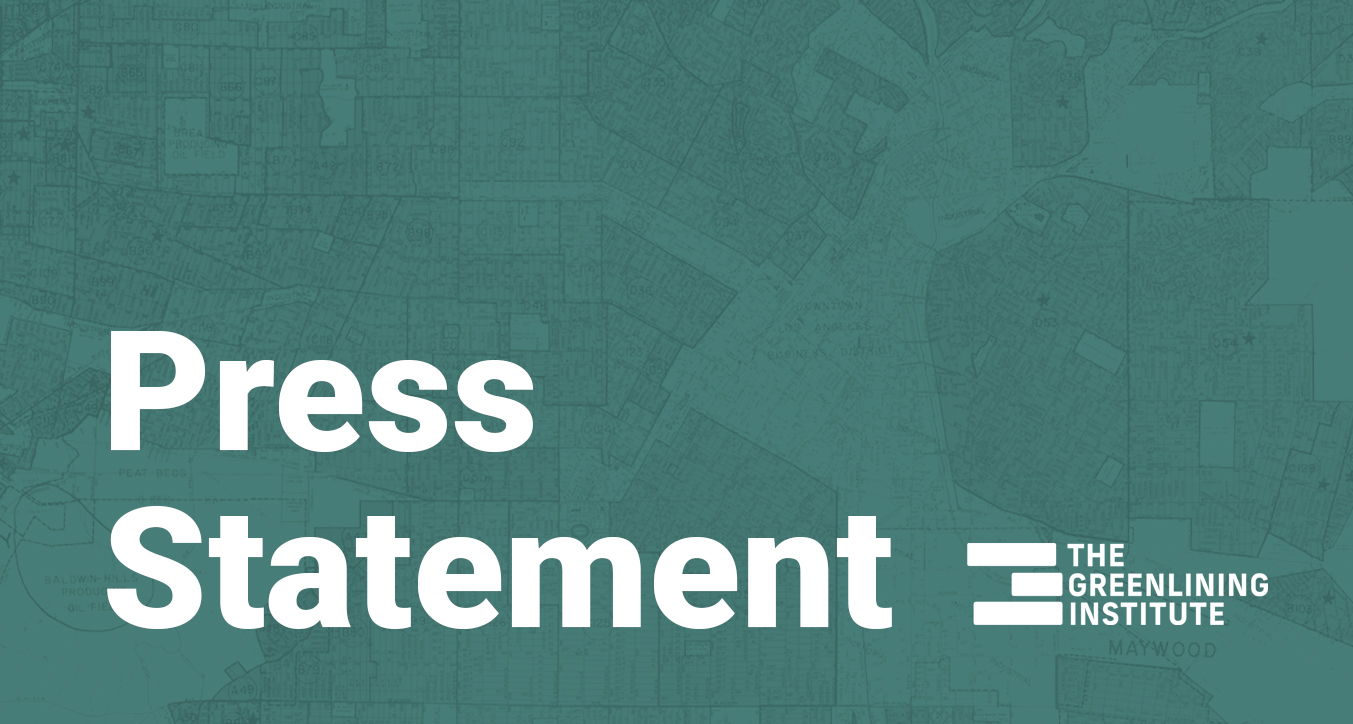State Budget Makes Key Investments to Address Recovery

Media Contact
Danielle Bell
SENIOR PROGRAM MANAGER FOR MEDIA RELATIONS
media@greenlining.org danielle.bell@greenlining.org
Contact: Molly Tafoya, Director of Communications, The Greenlining Institute, molly.tafoya@greenlining.org; 808-256-7064 (cell)
(Oakland, CA, July 1, 2021) — The new fiscal year begins today in California with the FY 21-22 state budget taking effect. Earlier this week legislators passed a historic budget package totaling over $262 billion with investments in education, expanding healthcare access, and economic stimulus, including allocating billions of dollars in federal recovery money to communities still reeling from the COVID-19 pandemic and the resulting economic crisis. These critical and significant budget investments reflect the real needs of the state today, but fail to make the down payment on a just recovery that prioritizes communities hit especially hard.
“Existing inequities in our society are the result of deliberate policy decisions that we have an opportunity and an obligation to reverse. In turn, our commitment to policies show up in our budget allocations. And, with a historic budget surplus and federal recovery investments, this was the year to get this right,” said Debra Gore-Mann, President and CEO of The Greenlining Institute. “The Greenlining Institute’s budget priorities reflect our ongoing commitment to equity and moving towards a just economy where all can thrive. Unfortunately, this budget fell short.”
This state budget includes many critical investments that The Greenlining Institute celebrates including expanding Medi-Cal health insurance access to everyone over 50 years of age regardless of immigration status, $8.1 billion in direct relief to Californians, and over $12 billion for various housing and homelessness programs. After a year in which low-income people, particularly people of color, have seen their health and economic well-being devastated by COVID-19, Governor Newsom and legislators made considerable investments to address immediate recovery efforts.
Unfortunately, the budget ultimately fails to leverage the historic budget surplus to make key, long-term equity investments in the following ways:
- Office of Racial Equity: The budget line-item vetoed $10 million in funding for SB 17 which would have funded the creation of an Office of Racial Equity. We are disappointed that Governor Newsom could not reach an agreement with the Legislature, and deprioritized this opportunity to institutionalize their commitments to racial equity with the formation of a dedicated office.
- Zero funding increases for equitable clean transportation programs: The budget approved $150 million over two years for equitable clean transportation programs–a status quo level of funding from previous years, despite approving the largest single year funding amount ($3.4 billion) for zero-emission-vehicles. This approach of underfunding programs targeted at Californians most in need while also committing large amounts of funds to consumers who don’t need financial support to access electric vehicles must change.
- No transparency on the approved $3.7 billion “Climate Resilience” package: Legislative leaders and Governor Newsom agreed to spend $3.7 billion over three years for climate resilience and adaptation efforts, but the agreement lacks any details. The administration and the Legislature will negotiate these details in the coming days and weeks, adding to what has already been a confusing and frustrating budget process that has left much of the public in the dark as to how spending decisions are being made. Californians deserve more transparency and accountability from our budget process.
Here are the highlights of the 2021-22 FY Budget as it relates to The Greenlining Institute’s priorities:
- Utility Debt Relief. The Greenlining Institute celebrates Governor Newsom and the Legislature’s critical commitment to addressing utility debt by providing $1 billion for energy arrearages relief. However, this amount is not enough to protect impacted communities on the long road to recovery. We call on the governor and legislators to protect all Californians from power shut-offs by extending the disconnections moratorium to all those who are still vulnerable to losing energy service, especially during heatwaves and wildfires.
- Zero Emissions Vehicles. The budget approved $3.4 billion over three years for clean transportation, including $1.4 billion for clean trucks and buses, represents a historic step forward. However, we are disappointed by the status quo level of funding for electric vehicle equity programs compared to the robust commitment of funding to the Clean Vehicle Rebate Project. The budget approves $525 million over three years for the Clean Vehicle Rebate Project which explicitly excludes solely targeting low- and middle-income residents despite multiple studies finding that CVRP mainly benefits higher-income households. While the Greenlining Institute believes that transforming the car market to electric vehicles is important, it is time for the decade-long investment in CVRP to start ramping down, and to shift future investments to programs that prioritize and provide direct benefits to low- and middle-income households.
- Climate Resilience. In order to advance a true equity budget, legislators need to ensure that community resilience is prioritized alongside natural resource resilience as the details of the budget are finalized through the summer. The budget approved a lump-sum $3.7 billion package for climate resilience but included no details on what is included or how the funding would be disbursed. The Greenlining Institute along with 60+ organizations support the following investments in key, equity-forward programs including:
- Transformative Climate Communities (TCC). This innovative program that funds community-led climate projects that integrate clean energy, transportation, affordable housing and more, would be a critical investment that will transform long-neglected neighborhoods into models of economic and environmental sustainability. We urge the Legislature to fully fund TCC at $500 million.
- Urban and Community Forestry. California’s urban forests sequester carbon and are critical to helping the most vulnerable populations adapt to climate change, create community resilience and preserve their mental and physical health. The Greenlining Institute calls on the Legislature to invest $200 million for this program.
- Low-Income Weatherization Program. We encourage legislators to increase their support of the LIWP program to $375 million. This critical program helps low-income households cut their utility bills and improve health and safety while saving energy, creating jobs, and preserving affordable housing.
- Urban Greening. Vulnerable populations too often lack access to parks and green spaces within walking distance of their homes. The Urban Greening Program helps to mitigate these inequalities. Governor Newsom’s proposed $200 million over two years represents a solid beginning.
- Community Resilience Centers. The Greenlining Institute supports the development of a new program for community resilience centers that focuses on placing facilities closest to vulnerable communities that address the growing needs of working class communities of color. As these communities face converging climate, economic, public health crises, we urge leaders to fund this important program at $350 million.
- Regional Climate Collaboratives. Implementation of SB 1072 (Leyva, 2018) to create the Regional Climate Collaboratives program will build the capacity of local communities to make the transition to a climate resilient future, building community-driven leadership, knowledge, and skills. We urge the governor and legislators to invest $35 million.
- Vulnerable Communities Platform. The Greenlining Institute calls on the Legislature to invest $5 million under community resilience for this program. The mapping platform will provide California with a tool that holistically and comprehensively displays the data needed to identify communities most vulnerable to climate change impacts.
- Housing and Rent Relief. Housing unaffordability is an existential crisis facing California’s communities of color. The budget includes $12 billion for housing and homelessness relief over the next two years. While the details are still to be determined, the budget did include $1.75 billion for affordable housing construction, $300 million to preserve existing housing, $130 million for farmworker housing, and $600 million for grants to local governments. The State Legislature and Governor Newsom also announced a deal to extend the eviction moratorium through September 30, and made a commitment to utilize $5.2 billion in federal recovery funds for rent relief.
- Broadband. The final budget allocation of $6 billion towards open-access middle-mile broadband networks, municipal broadband, and last mile infrastructure is a critical investment that will provide Californians with long-term benefits, while ensuring families can afford the internet while these new networks are built.
- Stimulus Payments. The budget includes $8.1 billion to Californians with an income up to $75,000 with payments ranging from $500 to $1,100. This is an essential step in ensuring that families still struggling due to COVID-related economic impacts do not fall farther behind. We applaud this investment and look forward to additional innovative thinking to address other areas of racial and social inequality.
“This budget is another step in the long road to recovering from COVID-19, but we cannot and will not return to business as usual,” concluded Gore-Mann. “At The Greenlining Institute, we are committed to ensuring these historic levels of investment are allocated rapidly and equitably so that vulnerable communities are prioritized. Our work over the last three decades has shown us that racial equity will not just ‘happen’. It will be created with intentional, decisive, immediate action.”




